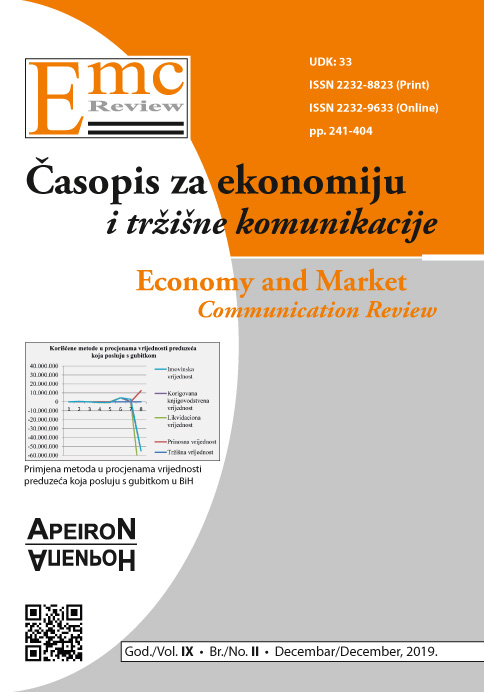EVALUATION OF UNCONSTRAINING METHODS IN AIRLINES’ REVENUE MANAGEMENT SYSTEMS
DOI:
https://doi.org/10.7251/EMC1902368BAbstract
Airline revenue management systems are used to calculate booking limits on each fare class to maximize expected revenue for all future flight departures. Their performance depends critically on the forecasting module that uses historical data to project future quantities of demand. Those data are censored or constrained by the imposed booking limits and do not represent true demand since rejected requests are not recorded. Eight unconstraining methods that transform the censored data into more accurate estimates of actual historical demand ranging from naive methods such as discarding all censored observation, to complex, such as Expectation Maximization Algorithm and Projection Detruncation Algorithm, are analyzed and their accuracy is compared. Those methods are evaluated and tested on simulated data sets generated by ICE V2.0 software: first, the data sets that represent true demand were produced, then the aircraft capacity was reduced and EMSRb booking limits for every booking class were calculated. These limits constrained the original demand data at various points of the booking process and the corresponding censored data sets were obtained. The unconstrained methods were applied to the censored observations and the resulting unconstrained data were compared to the actual demand data and their performance was evaluated.Downloads
Published
2020-03-03
Issue
Section
Чланци
